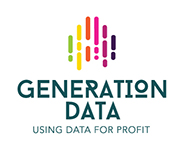As part of its ongoing commitment to the digitalization of the economy, the EU states that “data-driven business models are the engine of Europe’s growth, industrial transformation and job creation”. The benefits are clear: existing and new businesses responding to smart data can improve products and services, thus generating economic growth while contributing to social progress.
 In addition the 2017 report Aktywni+ from Warsaw University revealed that the most in demand skills by Polish managers and business owners are “Data management skills: analysis, credibility assessment, researching and logical thinking “
In addition the 2017 report Aktywni+ from Warsaw University revealed that the most in demand skills by Polish managers and business owners are “Data management skills: analysis, credibility assessment, researching and logical thinking “
To remedy this situation, Generation Data aims to improve the ability of HEI education providers to understand and teach smart data skills, thus providing Students, early stage entrepreneurs and businesses with more relevant, effective teaching and training.
We will respond to these needs by pursuing the following objectives:
- carry out a survey (IO1) of current smart data skills in education as part of our toolkit
- create a smart data skills teaching model, comprising OERs (IO2) including a curriculum, teachers guide, lesson plans & suggested content and learning exercises
- train the1st generation of Generation Data Teachers and Lecturers (learning activity) and widely disseminate the OERs to encourage rapid integration of the teaching course into current degree and short course provision
- develop an online Generation Data course (IO3) to maximise access to the new teaching and reinforce classroom delivery
 Generation Data will involve at least 60 educators as participants in the testing of these outputs and we will organize a Teach the Teachers Learning Activity in Ireland for 16 educators, who will return to their organisations ready to begin teaching students and early stage entrepreneurs in smart data skills. At least 240 representatives of HE organisations and relevant stakeholders will participate in four multiplier events in Poland, Ireland, Lithuania and Hungary.
Generation Data will involve at least 60 educators as participants in the testing of these outputs and we will organize a Teach the Teachers Learning Activity in Ireland for 16 educators, who will return to their organisations ready to begin teaching students and early stage entrepreneurs in smart data skills. At least 240 representatives of HE organisations and relevant stakeholders will participate in four multiplier events in Poland, Ireland, Lithuania and Hungary.
As tangible results of the project, we expect:
- 500 teachers/lecturers to download/receive the OERs and use them to understand smart data skills and have effective pedagogic strategies for teaching and assessing them.
- 20 education organizations, principally in HE, but also in VET sectors, commit to introducing smart data skills into their degree and short course programmes either through direct classroom or small group delivery or by referring students to the online course.
- 30 stakeholder organisations value smart data skills as a key competence within the framework of HEIs and driver of economic growth and commit to exploring new ways to support and incentivise organisations who offer its teaching
On completion, the project will have made it possible for current and future generations of students to access effective, practical teaching on generation, management and analysis of digital data. The long-term result will be a better qualified workforce in the most in demand skill, improved business growth and higher levels of digital competencies within the higher education sector.
At national and EU level, we hope for a different impact: a prioritisation of data skills education in education. For this to happen, first we increase in the number of policy makers and key decision makers who are aware of the potential impact of smart data in SME and entrepreneurial sector, and then show how data skills contribute directly – and in a very horizontal manner – to many of the skills already identified in EntreComp and DigComp.



